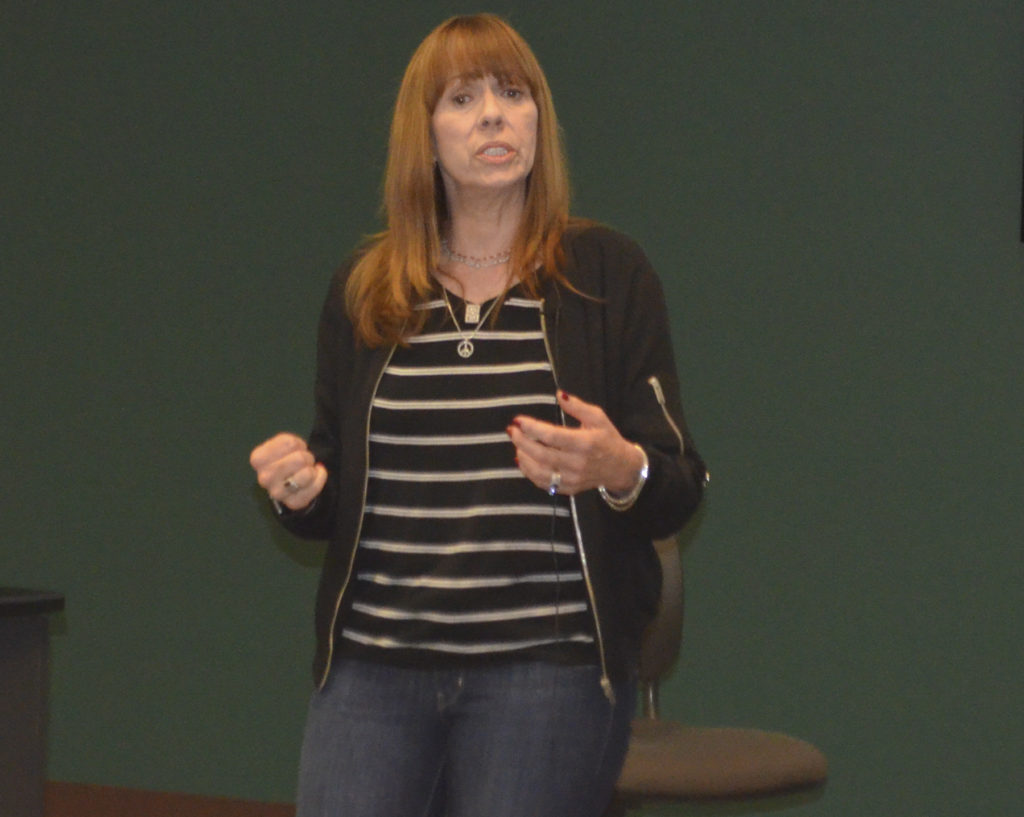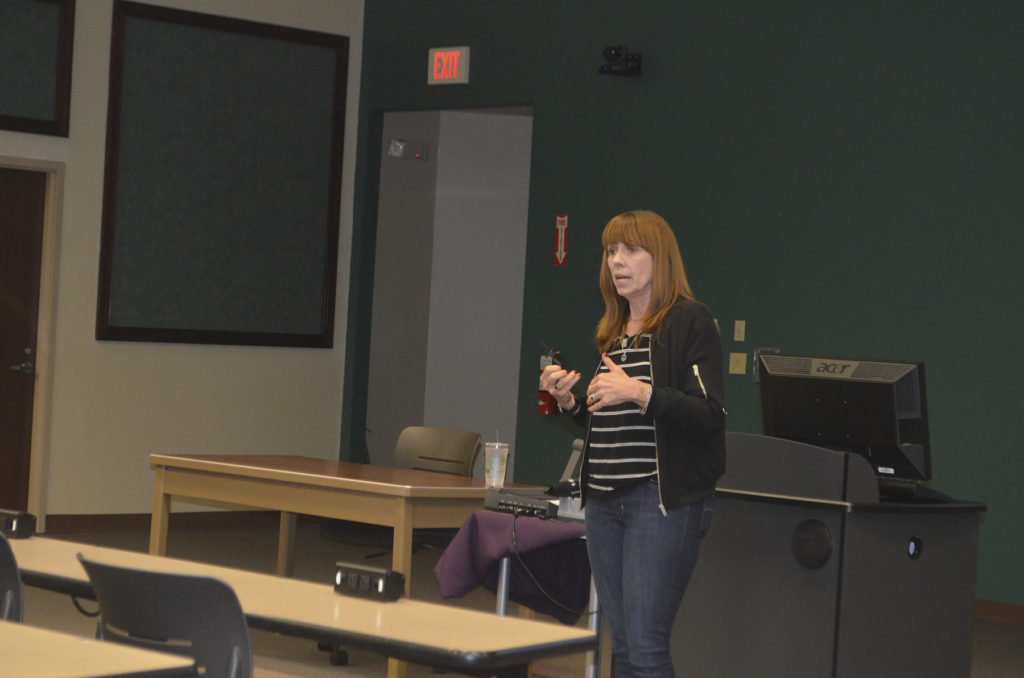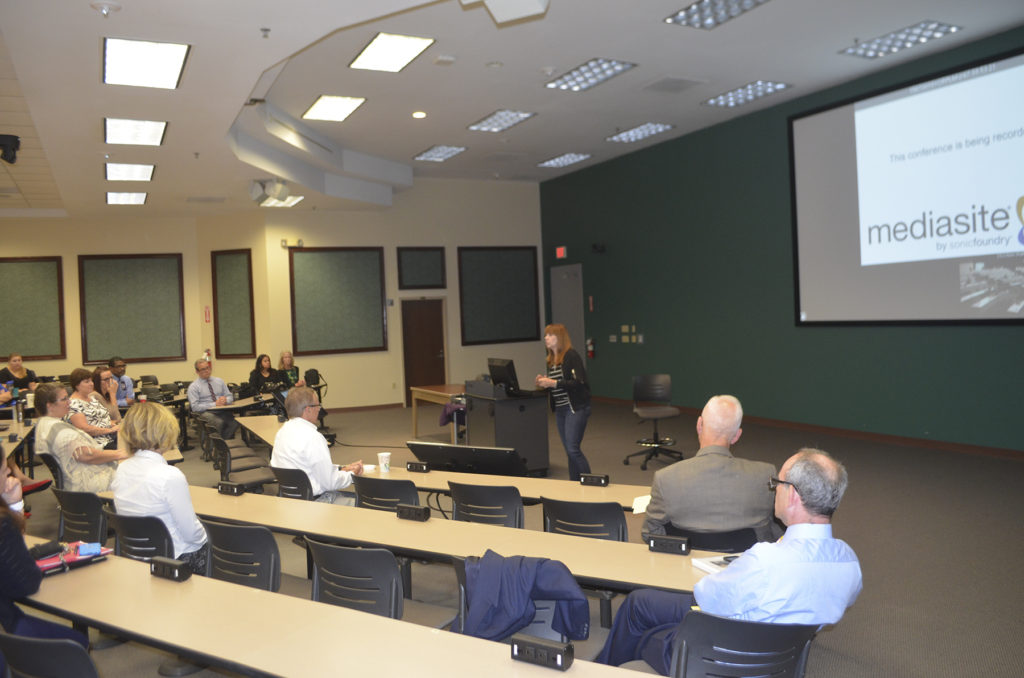 By Paul Thompson
By Paul Thompson
Northeast News
Actress Mackenzie Phillips opened up to Kansas City University (KCU) students about her past issues with addiction on Thursday, September 14.
Phillips gained infamy at a young age – she’s the daughter of rock star John Phillips of The Mamas & the Papas and had breakout roles in the hit film American Graffiti and popular sitcom One Day at a Time. That attention, however, came with a price.
Phillips has been working as a counselor and addiction recovery advocate for the past five years. Before that, though, she grappled with her own addiction demons. In addition to cocaine abuse, which she first used at age 11, Phillips found herself in the throes of an opioid addiction.
For years, Phillips battled with crippling physical pain. She says she was diagnosed with all sorts of ailments, from carpal tunnel syndrome to chronic back pain to lupus. Phillips told a story of coming through Kansas City while performing in a tour of Annie. She said that she spent almost all of her spare time in bed suffering through extreme pain, with Fentanyl patches serving as her primary form of relief.
To combat the various issues, Phillips relied on a steady diet of opioids. Whenever she was prescribed a new opioid, Phillips said that it was only matter of time before she abused the prescription.
“People would come to my house and say, ‘You’re dying. This medication is killing you,’ Phillips said. “I would say, ‘But I hurt. I’m in pain; can’t you see?’”
She told the KCU students of being prescribed one drug called Opana – a powerful opiate medication that she would crush up and snort.
“I’ve never been so high in my life,” Phillips said. “This stuff produces a euphoria so powerful that I don’t know how anybody could resist it once they get it.”
The strength of the opioids, Phillips says, is exactly how someone can jump from prescription drugs to something harder and decidedly less legal.
“Especially given my history, it’s clearly not a stretch of the imagination that I would jump from high, high doses of Opana to heroin,” Phillips said. “The jump from prescribed opioid medication to street heroin is no longer a shock, because it’s happening every day.”
Phillips added that while there’s no easy fix to the opioid epidemic that is running rampant through the country, she believes that there is a helpful role for physicians to play. Those addicted to opioids still need a doctor to refill their prescriptions, after all.
“I’m not sure how to fix this, I’m not sure what needs to be fixed, but I do know that it starts on the front lines,” said Phillips. “It starts with the people with the triplicate pad, it really does.”
Even drugs that help addicts wean themselves off of opiates – such as Suboxone or Methadone – create their own issues for those struggling with addiction, Phillips said. The biggest issue? Those drugs help addicts avoid the big issues in their lives.
“When you put someone on Suboxone or Methodone, one day they’re going to want to get off it,” Phillips said. “And guess what? Everything that they’re avoiding by being on Methadone or Suboxone is just waiting right down the road. Horrible withdrawals, the anhedonia – the loss of joy – it’s all just waiting.”
In her life, Phillips said that she’s gone through drug and/or alcohol treatment on 11 different occasions. Though Phillips now sits on the other side of the table, she says that she still feels great compassion for those going through the trials and tribulations that she once did. She relayed one story of an Ohio morgue that literally ran out of room for victims of accidental overdoses, and another of seeing senior citizens who had never struggled with addiction suddenly going to extreme lengths to refill their opioid prescriptions.
Soon enough, the future doctors at Kansas City University will be joining Phillips in the fight against opioid addiction. For her part, Phillips says that becoming a drug counselor is the best thing she’s ever done.
“In the behavioral health field, there’s never a dull moment,” Phillips said. “There’s something in me that is just in love with the work.”





















